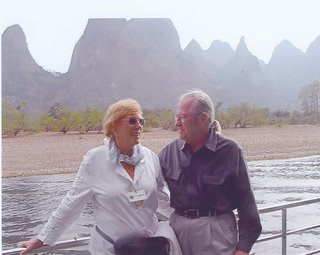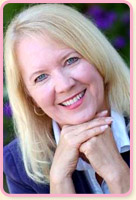A Hero's Rhytmn

Phil Theodorou
Joyfully doing what he loves,
making beautiful music
Click to hear Phil's message to San Clemente
The Call
One doesn’t decide to become a hero. The hero chooses you.
Like other heroes in our midst, Phil Theodorou didn’t set out
to become a hero when he brought together 110 varied voices
from the corners of San Clemente.
He just wanted to bring people together to sing.
Now, it’s not always convenient when the hero calls. Phil had
plenty to do with five other chorale groups he was directing.
But the soul of our city was calling out for more musical
nourishment. The music called Phil.
The first thing you notice about Phil is energy. High energy.
Fun energy. The energy of life. Phil started the San Clemente
Choral Society (SCCS) to give our community a place where
people can gather during the week and make music together.
“There was a need,” Phil said. The parents of his students
could hear them performing such great music and said, “It’d
be so much fun if I could experience that too.” Phil put two
and two together and “bet this could fly.”
Not only did it fly, it soared.
Phil’s interest in music started early, “My dad put me on a
steady diet of classical music when I was a baby. One of my
favorite childhood memories was just sitting with him,
absorbing great pieces of music.“ When Phil was six, his
elementary school was visited by the music director of the
Pasadena Boys Choir. That clinched it. Music grabbed his
soul and wouldn’t let go. He got sidetracked a bit as a
pre-med student in college. “Then I took organic chemistry.
That did in my medical career.” The music had won.
The Sound of Music
Phil has a unique way of blending voices. Rehearsals are
fast-paced, yet amazingly beautiful. “Let’s go through this
section,” he tells them. “OK. We can fix this, this, this.
Can I hear it again?” He “shapes” the sound. “The ideal sound
I look for comes from correct pronunciation. I get them familiar
with notes, rhythms and the way the words are set. I allow
them to sing the way they’re going to sing. One thing that
makes a beautiful sound, is if it’s made with joy and happiness.
That makes a far more beautiful sound than any technique.”
“Each singer taps into something unique. It’s my role to facilitate
that endeavor. That’s why you get into directing in the first place.
You have to be a musician, teacher, cheerleader, psychologist,
and businessperson. Some have never read a piece of music
before. Looking at these dots, dashes and sticks on a page and
trying to equate them with what you hear is daunting. I tell them
‘It’s like your first swimming lesson, getting thrown into the pool.
You have to do something to make it work!’ Above all, I urge them
not to give up. A community chorus is supposed to be enjoyable,
not have a great deal of pressure. I squeeze them, but I squeeze
them just enough so they’re moving ahead, but not so much
that I choke em.”
Folks, we have our own Doctor Phil right here in San Clemente.
The music doctor. Making people feel better through great music.
“I get to be the prism through which their energies are focused.
Music is everywhere. It’s in us. Our whole existence is based on
a rhythm, a rhythm of life.”
“Good music is a journey. You don’t know where you’re going.
But when you arrive, you say. ‘This is the place where I’m supposed
to be,” says Phil. It’s very much like life. That old hero’s journey again.
Focus on Greatness
In his San Clemente High music appreciation class, Phil loves to
teach students how to discern good from bad music “I present
examples of what’s great. It’s like a great restaurant tour. If you
give them a diet of great food by an outstanding chef, or a number
of outstanding chefs, they begin to relish the experience. They’re
able to discern. It’s like asking them ‘Are you tasting this? Do you
see how this meal is presented? Do you see how the flavors
compliment each other? That’s like explaining what a great
piece of music is like.”
“We live in a society culturally that subsists off what it’s given,”
says Phil. The vast majority of what kids are exposed to, is what
record companies want them to be exposed to. Kids don’t know
anything else. It’s overwhelming for some students to be faced
with great music. If I play Rossini, The Barber of Seville, the first
thing that pops in their mind in Bugs Bunny. I tell them ‘We
associate this music with Bugs Bunny. What’s its real purpose?
Why does it sound the way it sounds? Here’s why.’ That opens a
door. They start to think about what the music is trying to communicate.”
What will Phil teach his one-year old son, Alexander about music?
“Music teaches you unique things. You understand yourself better.
Understanding notes, rhythms and how music works is very
important for my wife and I. There certainly will be lots of music
in our house! Fostering the growth of the musical area of
Alexander’s mind will be very helpful for him in life. It’s like eating
a healthy dinner. Right now I have him listening to lots of music,
lots of patterns. You’ve probably heard about the Mozart effect.
I’m a big believer in that.”
“We are living with the Mozarts of today. People had no idea the
profound effect Mozart would have on music when he was alive.
Bach even more so. Good music will survive despite the
materialistic bent on things. The desire to create beauty is innate
in the human spirit. A hundred years from now, they’ll look back
on those pieces that have lasting power. They’ll marvel at them,
the same way we marvel at masters we revere now. Much of what’s
getting attention now will not last. A genius follows his heart,
whether it be a genius of music, literature or as a leader. I’ll quote
Joseph Campbell. ‘Follow your bliss.’ Then Phil adds, “If you follow
your bliss, you end up with…bliss.”
That’s a great note to end this column on. There are a lot of notes
in the air around Phil Theodorou. Perhaps you will be lucky enough
to hear some of them.
Live like a hero!
Terri Marie
Award-Winning author of “Be The Hero of Your Own Game.”
To view other hero stories or share your own hero story visit
www.heroesamongus.blogspot.com
Heroes Among Us is supported by Wal-Mart
Lessons From Phil
• Use the resources around you
Originally Phil got the word out through the Sun Post News.
“They seemed to be the best vehicle. I imagined people
who’d be interested would read the paper. There’s no way
we could’ve got off the ground if it hadn’t been for the Sun Post.”
• Every experience is unique
“I tell every choir, ‘Once this concert’s done, it’s for the
archives. It’ll never happen again.’ There have been thousands
of performances of Messiah in the last ten years, but the one
we did, was a great moment. A mountaintop experience.
I get to create them on a regular basis.”
• Learn by example
He credits John Alexander, director of the Pacific Chorale
for invaluable help in teaching him how to become a chorale
director. “He never gave me an outline, but when you see an
artistic director work, you begin to get it,” Phil said. “That made
more of a statement to me than any thing that could’ve been said.”
• Beauty is in the ear of the beholder
“Every choir has a unique sound. I don’t tinker with it too
much as long as it’s beautiful. There are many different
beautiful sounds, just like there are many different beautiful voices.
Listen to Louis Armstrong. What would be considered a very gravely,
raspy voice, had a beautiful quality to it.”
• Think of your audience/clients in your decisions
“I choose music that will speak to them. Then I take the music to
where it becomes polished. It’s like creating a sculpture. You chip
away till you get a basic shape of what you’re looking for.
Then you refine it.”
• Have an open door policy
“I don’t want anyone to drop out. If that happens, I tell them,
“Down the road we’re doing this music. It might be more
suited to you. Why don’t you join us again?”
• Look for patterns
“My father is a math teacher. My mother a French teacher.
Between them I learned a great deal about patterns of
language, and patterns of numbers. There are patterns in
music too. Become familiar with patterns. They are studies
in logic and problem-solving. Music is an exercise, as is
studying a language, or doing laps.”
• Mental challenges are good for you
“There’s a great saying by Seneca. I remember this well
because it was emblazoned on top of the presidium at
my junior high. Seneca said, “Difficulties strengthen the
mind as labors do the body.” I believe that.”






